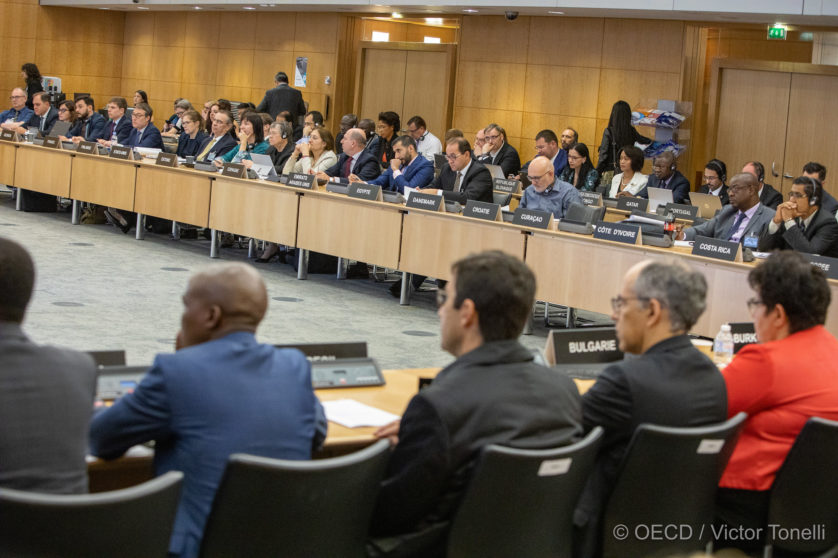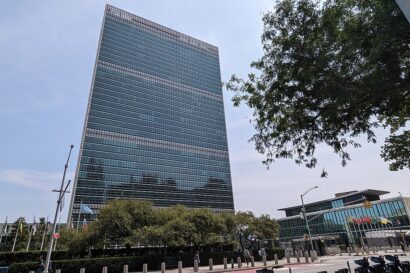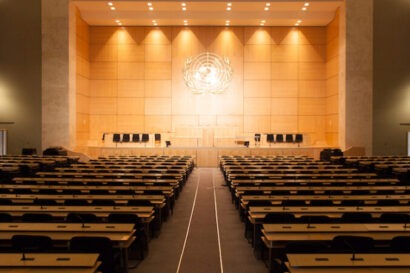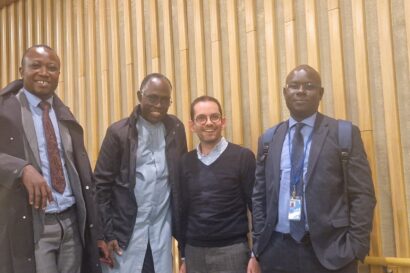The public consultation on the OECD Secretariat’s proposed “Unified Approach” to international corporate taxation ends on November 12th. Despite promises of “equal footing,” it seems that countries outside a core group of key players have not really experienced inclusive participation in the process. This sets a dangerous precedent.
Procedurally unusual, and troubling
The OECD Secretariat’s proposal marks a procedurally unusual development: it expressly declines to represent the views of the 36 member states, let alone the 134 Inclusive Framework members. The proposal is a framing exercise, intended to restrict continued discussion to solutions considered to be feasible. Feasible to whom and for what purpose is an open question.
I would characterise the Secretariat’s procedural move as fascinating, frustrating and exasperating:
Fascinating because the ideas are absorbing and fun to think about. For example, the OECD prescribes a “new” taxing right—as if the right to tax is something within the purview of a limited-membership intergovernmental network. That’s wrong in international law terms, I think. But fascinating!
Frustrating because there is simply too little time and too much to read, listen to, think about, and respond to as an outsider to the process (let alone an insider with no doubt much more to read and comment on); and yet the expected compromise might ultimately represent little more than an incremental improvement (if at all) of the international tax order.
Exasperating because the powers that be are almost brazenly repeating the path of tax policy consensus cycles past. The vast diversity of thought and opinion that ought to be brought to the process simply will not be brought to bear, because there is no time for that. There is only time to deliver the fastest possible compromise—which means establishing a norm set that is mutually agreeable to a very small set of key actors, and then spreading the norm through guidance and peer pressure.
If anything, what is unified in the OECD approach is its commitment to an exclusive process of consensus building that replicates that of the founders of the international tax order, apparently unchanged by developments like inclusive participation and equal footing.
Issue framing serves Great Power priorities
The reason for deliberation is a point of contention that mainly affects the great powers, that is, the US and Europe. This is, essentially, Europe’s desire to tax US digital giants more than is permitted by the rules currently agreed. The point is considered critically important to key actors so it commands maximum attention from policy leaders and experts which expands to all sectors—academic, professional, government, and nongovernmental organisations. The proposed solution will be globalised through network affirmation before it is understood (like passing a bill in order to know what was in it).
Yet the proposal arises on the conventional wisdom that double taxation is inherently bad, a wisdom that is not subject to question let alone analysis. It is also presented as technical and apolitical even though it embeds choices that have distributional consequences and will potentially frame the debate for another generation.
An urgent process falls back on conventional expertise
The great powers looked to inter-governmental networks for an appropriate and convenient policy-making space for this urgent work; the one network with adequate, permanent, full-time staffing from among their members is the OECD. The OECD has prioritised time to consensus, not process to consensus, and certainly not normative assessment of consensus.
Even with all of its expert staffing, the urgency and magnitude of the critically necessary project development requires calling in external experts to propose positions around which consensus can form. Yet these experts are themselves from the great powers, and the proposed solution is designed for maximal acceptability by the great powers. Non-member states are on an equal footing in the Inclusive Framework and in the Committee on Fiscal Affairs, but that does not extend to the OECD Secretariat, which for tax is housed within the Centre for Tax Policy and Administration.
Meanwhile, some of the key influencers of the process are major stakeholders of major multinationals, and as such they have massive incentives to shape the consensus to their preferred position by all available means. These multinationals have all the available means, especially political and administrative network connections and influence, if not to shape the consensus of their desires, at least to slow or stop consensus that they really dislike.
The consensus taking shape excludes developing country interests
The one proposal in this process from outside the US and Europe – the G24’s significant economic presence – has been completely excised without explanation after enjoying a brief moment in the spotlight in the May 2019 Programme of Work. It was apparently not considered feasible. The Secretariat’s Proposal is therefore puzzling if the Inclusive Framework is supposed to give non-OECD countries a meaningful voice in international tax policy deliberations. It seems the OECD intends to continue to deliberate within its core group and then disseminate outward, as it has always done. There is little time to analyse the likely distributional effects of the proposed solution. There is no time to wait for all of those potentially impacted by the proposed solution to assess the scale and direction of the impact; however, they will be asked to agree to it. Having no alternative at the ready, agreement is a rational choice.
The good news is, the flaws of this cycle of tax norm-making will inevitably bring forth another, as those left out of deliberations take issue with the consensus presented to them. The bad news is, we don’t seem to have learned the lessons from the flawed policy-making processes of the past. Why should countries cooperate with a unified approach whose main feature is a replication of longstanding patterns of exclusion?
A proposal to get the Inclusive Framework back on track
All members of the Inclusive Framework deserve the full participation and equal footing they were promised. I and others have questioned the legitimacy of the Inclusive Framework, but we should be willing to give it a chance. To that end, I have three suggestions for the OECD:
- Hire a group of experts, including from Inclusive Framework countries outside the core group, to spend the next several months full time in developing the G24 proposal, which actually is a unified approach in terms of its turn to unitary rather than separate entity accounting. Maybe unitary taxation is a terrible idea, but the OECD owes it to the members of the Inclusive Framework to take it seriously by dedicating resources to study how it would work, at minimum in the same amount and commitment as that dedicated to the Secretariat’s Proposal.
- Hire a group of economists and other experts, again including from Inclusive Framework countries outside the core group, to examine and compare the worldwide distributive implications of the Secretariat’s Proposal and the G24 Proposal, before asking the Inclusive Framework to agree to any consensus.
- Be more forthcoming about how it goes about choosing experts to act on behalf of the Secretariat and how the Secretariat decides what is feasible, whether in the BEPS project or otherwise. To this end, I wish that the member countries of the OECD would be more attuned to the international tax consensus-building processes they are supporting and from which they continue to benefit, rather than constantly prioritising their own needs over those of non-member countries.
For more on these issues, please see my new paper “A New Global Tax Deal for the Digital Age.”
Read the response to this piece by Ben Dickinson, Head of the Global Relations and Development Division in the OECD’s Centre for Tax Policy and Administration.




